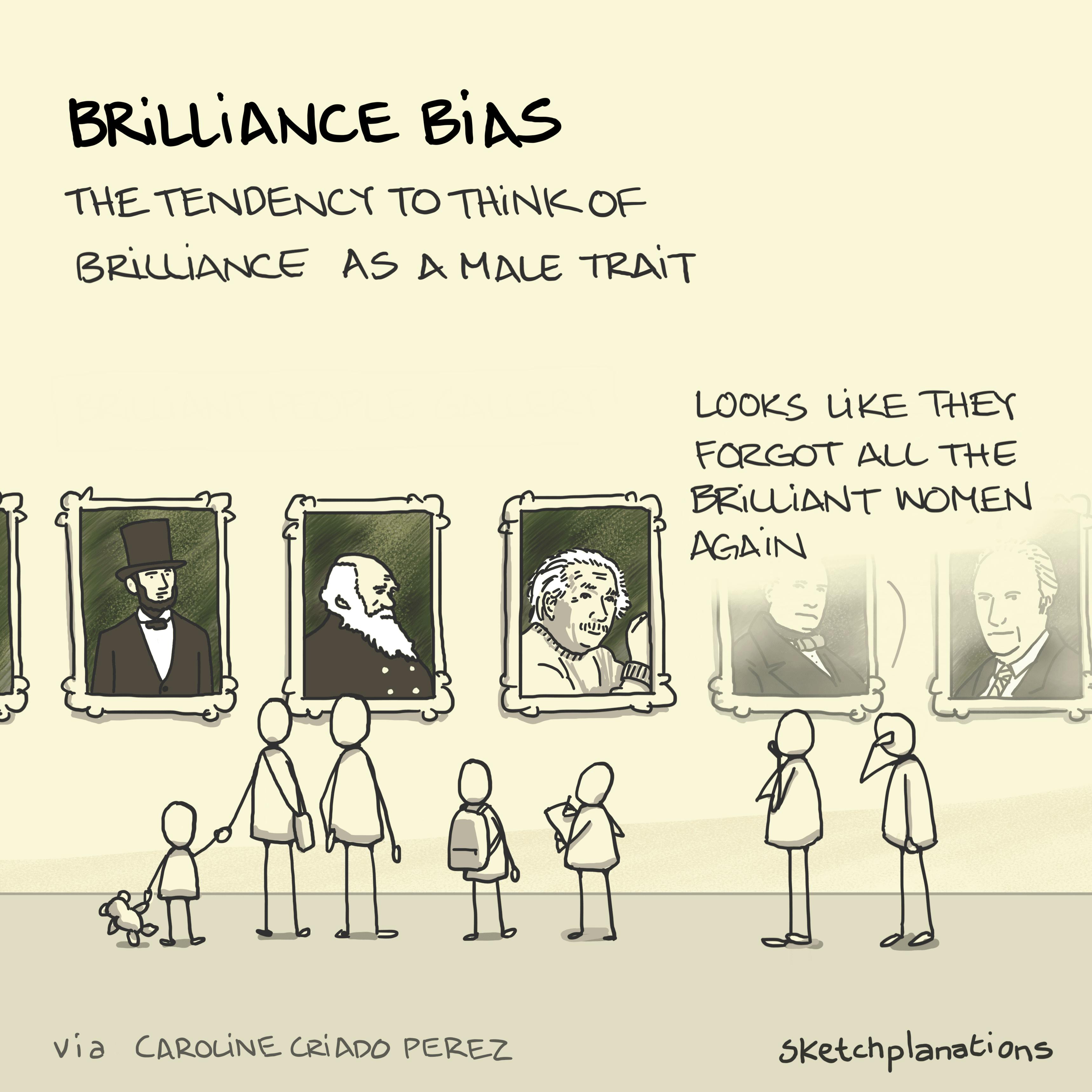Brilliance bias

👇 Get new sketches each week
Brilliance bias is the tendency for people to think of 'brilliance' as generally a male trait. With fewer women generally recorded in the history books, the brilliant people that come to mind from a young age tend to be men.
Underrepresentation has consequences. Careers that are generally understood to require 'brilliance' to succeed, such as maths, physics, or philosophy, are likely to have fewer women working in them. Even at school age, attitudes start to shift in both girls and boys. For example, having an interest in games that require you to be 'really smart' or whether, when asked to draw a scientist, we draw a woman or a man. We need to stop teaching brilliance bias, and we need to celebrate the many female role models we have.
My sister shared with me a page on drawing famous faces that showed 49 men to draw, and an example of the board game Guess Who having as many women to guess as it has men with facial hair as an attribute.
Caroline Criado Perez 's eye-opening book Invisible Women taught me about brilliance bias, including the examples here.

